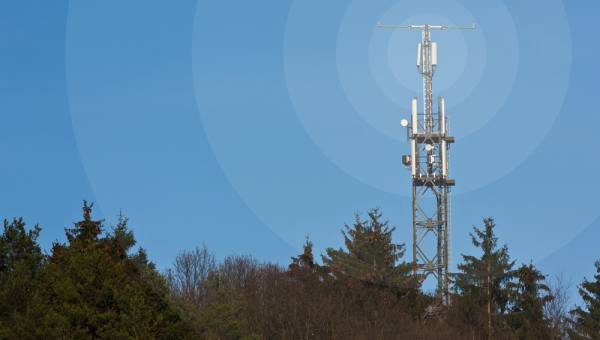'Spectrum reallocation could benefit Africa by up to $22bn'
'Spectrum reallocation could benefit Africa by up to $22bn'

Reallocating C-band spectrum from satellite to mobile could bring Africa benefits of up to US$22 billion, far higher than the costs involved, according to new research.
A new report launched by the GSMA and conducted by Frontier Economics, considers how mobile operators in Africa can respond to the predicted spike in demand for mobile data over the next four years to 2018, with the results of the research advocating the reallocation of spectrum away from satellite.
Citing Cisco statistics, the report outlines that world data traffic doubled between 2012 and 2013; and looking forward, the Middle East and Africa (MEA) region is in particular projected to see incredible growth in mobile data traffic through to 2018 - Cisco predicting 14-fold growth between 2013 and 2018, at a compound annual growth rate of 70 per cent.
Mobile data traffic is expected to grow to account for 39 per cent of fixed and mobile data traffic in the MEA region by 2018, as compared to 10 per cent in 2013.
90 per cent of this mobile data traffic in the region is predicted to be via smartphones by 2018.
In the Sub-Saharan African region specifically, the data suggests over half of all subscribers will have 3G connections by 2020, compared to 15 per cent in 2013 - making the region the second largest region for 3G connections by 2020.
On the basis of this statistical background, the report sets out to determine the monetary benefits to Africa of reallocating some C-band spectrum - which ranges between 3.4 GHz and 4.2 GHz, and currently used to provide satellite services such as television - to mobile, such that mobile operators will be able to expand their capacity in line with the growing demand.
Comparing the one-off costs to satellite operators of reallocating spectrum to the long-term economic value of increasing spectrum available to mobile operators on the continent, the research estimated the benefits to Africa as a whole to outweigh costs by approximately 25 fold.
The economic benefits to the continent are predicted to range between US$10 billion and US$22 billion, while the costs are placed at between US$0.3 billion and US$1.1 billion.
Breaking down the benefits to a country level, the research looks at four locations in Africa - Egypt, South Africa, Nigeria and the Democratic Republic of Congo (DRC).
For Egypt, the research places the potential benefits of reallocation at between US$826 million and US$1.734 billion, while costs would range from US$21 million to US$64 million. This would rate the benefits of reallocations at approximately 33 times as large as the costs.
In South Africa, the benefits of reallocation are estimated at US$511million to US$1.072 billion. The costs come in at between US$29 million to US$109 million. In this case, the benefits are estimated at approximately 13 times costs.
In Nigeria, the research suggests the benefits could range from US$2.188 billion to US$4.595 billion, as compared to costs of between US$32 million and US$95 million - pointing to potential benefits 57 times the costs in the base case.
Finally, in the DRC the research places the benefits of reallocation at between US$498 million and US$1.046 billion, while the costs would be between US$9 million and US$39 million. Here, the benefits are approximately 35 times the costs.
In addition to the economic benefits outlined, the report suggests African governments could also raise revenues through taxation of the mobile industry and through the auction of spectrum licences, with the potential revenues estimated at US$13 billion.
Launching the report and its findings at the African Telecommunications Union's third preparatory meeting for the International Telecommunications Union's (ITU) World Radiocommunication Conference 2015 (WRC-15) to be held in November his year, Mortimer Hope, director of spectrum and public policy in Africa at the GSMA, said decisions made at the conference regarding spectrum reallocation could define the future of mobile data in Africa.
"At WRC-15 in November 2015, Africa has a rare opportunity to secure the future of the mobile Internet. Decisions on spectrum allocation made at WRC-15 will define mobile connectivity well into the next decade," Hope said.
According to Hope, governments need to take steps to relieve the increasing pressure on mobile networks by releasing further spectrum to operators, in order to ensure Africa does not miss out on the proven social and economic benefits of reliable mobile internet.
"Exponential growth in the use of mobile phones, tablets and other wireless devices accessing the Internet is putting intense pressure on existing spectrum allocations in Africa. Unless governments choose to grant mobile operators access to sufficient spectrum, countries across the continent will miss out on the substantial socioeconomic benefits that mobile broadband delivers," Hope said.
"It is therefore critical that governments and regulators take the opportunity that WRC-15 provides to take strategic and decisive action on spectrum allocation that will safeguard the future of mobile broadband in Africa. Policymakers need to act urgently to deliver all the undoubted advantages that the mobile internet provides to citizens throughout the continent."